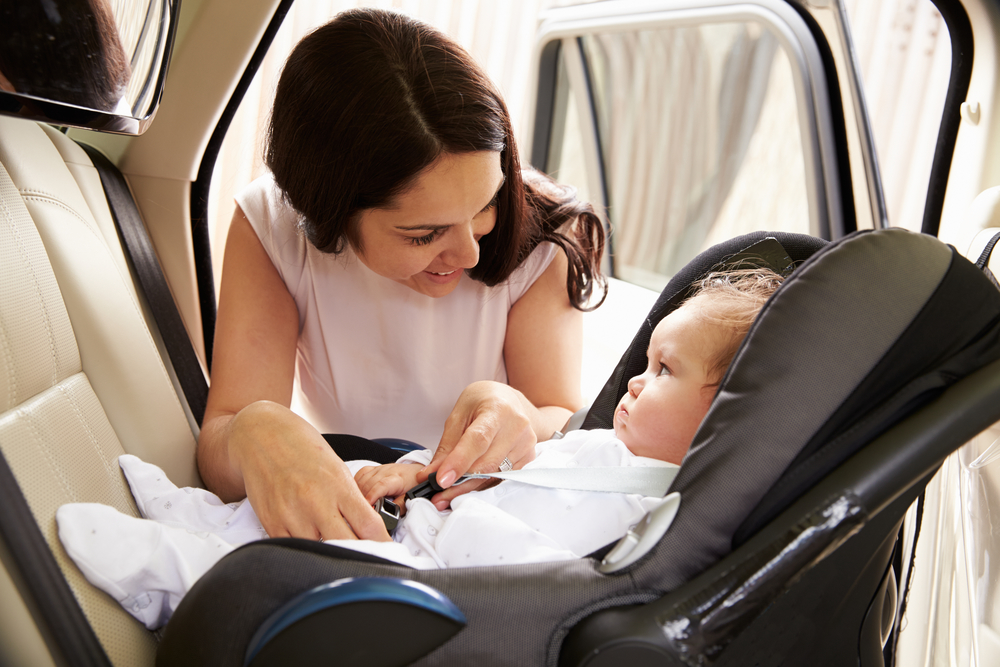

Kid’s medicine. Galaxy Note 7 smartphones. Baby walkers. All of these objects were recalled for safety issues, and while some were high-profile affairs, others have gone totally under the radar and may still be in use in consumers’ homes.
Each year, the U.S. Consumer Product Safety Commission recalls roughly 400 items a year, according to CNBC. The commission, which is responsible for children’s toys, coffee makers, and 15,000 other consumer objects, monitors voluntary recalls companies make themselves, and enforces recalls on products that pose “unreasonable risks” to consumers. Other agencies have their own areas of expertise. The National Highway Traffic Safety Administration is responsible for car recalls; the FDA covers dietary supplements; and the FDA and USDA team up to monitor sausage links, spinach, and other foods.
Government agencies work hard to alert the public to recalls, disseminating the information through the news media, and keeping a real-time roster on their websites. But many remain unaware that their gadget or gizmo poses a risk. Here’s how to effectively and efficiently track recalls on everything you’ve ever purchased:
A tangled web
If your spidey sense is tingling and you think you may be part of a recall—or would like to demand one—the first stop should be the relevant a U.S. government agency site. This is also a good place to start before you buy a product on the second-hand market, like Facebook Marketplace or Craigslist. Sellers may not know—or willfully ignore—safety notices.
The product safety commission’s site offers a dedicated recalls list. Each recalled item comes with a photo for easy ID, basic product information and description of the surprise hazard, and a course of action.
When it comes to a gas range recalled last week, for example, the CPSC advises turning it off immediately, contacting the manufacturer at the provided phone number for repairs, and an opportunity to provide details of your own experience with said gas range. If you can’t find a given product, but are experiencing dangerous problems with it yourself, the CPSC’s website is also the right destination—specifically, its “Report an Unsafe Product” portal.
Similar procedures can be found over on the food safety site, where you can view recent recalls and report food posioning or a problem with food. The FDA’s drug recalls list tracks pharmaceuticals for every violation from inaccurate labeling to defective products that could endanger your health. And the NHTSA offers a recall search for automobiles, car seats, and tires according to VIN number.
Social solutions
If social media wasn’t dystopian enough, you can add salmonella outbreaks and baby injuries to the mix. The safety commission has a Twitter and a Facebook page. The FDA’s main Twitter and Facebook pages include drug recall information spliced with other updates on e-cigarette abuse among teens, or the omnipresent opioid crisis. The USDA food safety team has a Twitter and Facebook, too, if you’re looking for the freshest content on rancid meats.
Sign up for alerts
Perhaps the best solution for a concerned consumer is to subscribe to alerts about new recalls. The CPSC offers a suite of newsletter services, so you can hone in on problems with products for infants, sports and recreation, or any other genre that suits your shopping needs. The FDA isn’t quite so easily personalized, but you can still have its catch-all market withdrawals report delivered to your inbox. Ditto NHTSA, which offers offers a general recall email alert.
Register your products
For the most sensitive objects—like the ones made for your children—registering your product with the manufacturer might be a smart move. As the regulating body for motor vehicles, NHSTA allows you to register your car or booster seat with the agency. That way, if anything goes wrong with the particular or model cradling your child, you’ll be notified immediately. But it doesn’t stop with car seats. Manufacturers of many other children’s products must offer similar registries. When you buy a crib, swing set, or stroller, it should come with a paper registration card; mailing that back with your contact information should ensure you’re among the first to know about a recall.
Nothing is better than a good, safe, functional purchase. But when a box of cereal or a booster seat pose a threat to you or your family, it’s better to get that notification recall—or submit your own evidence of a problematic product—sooner rather than later.
